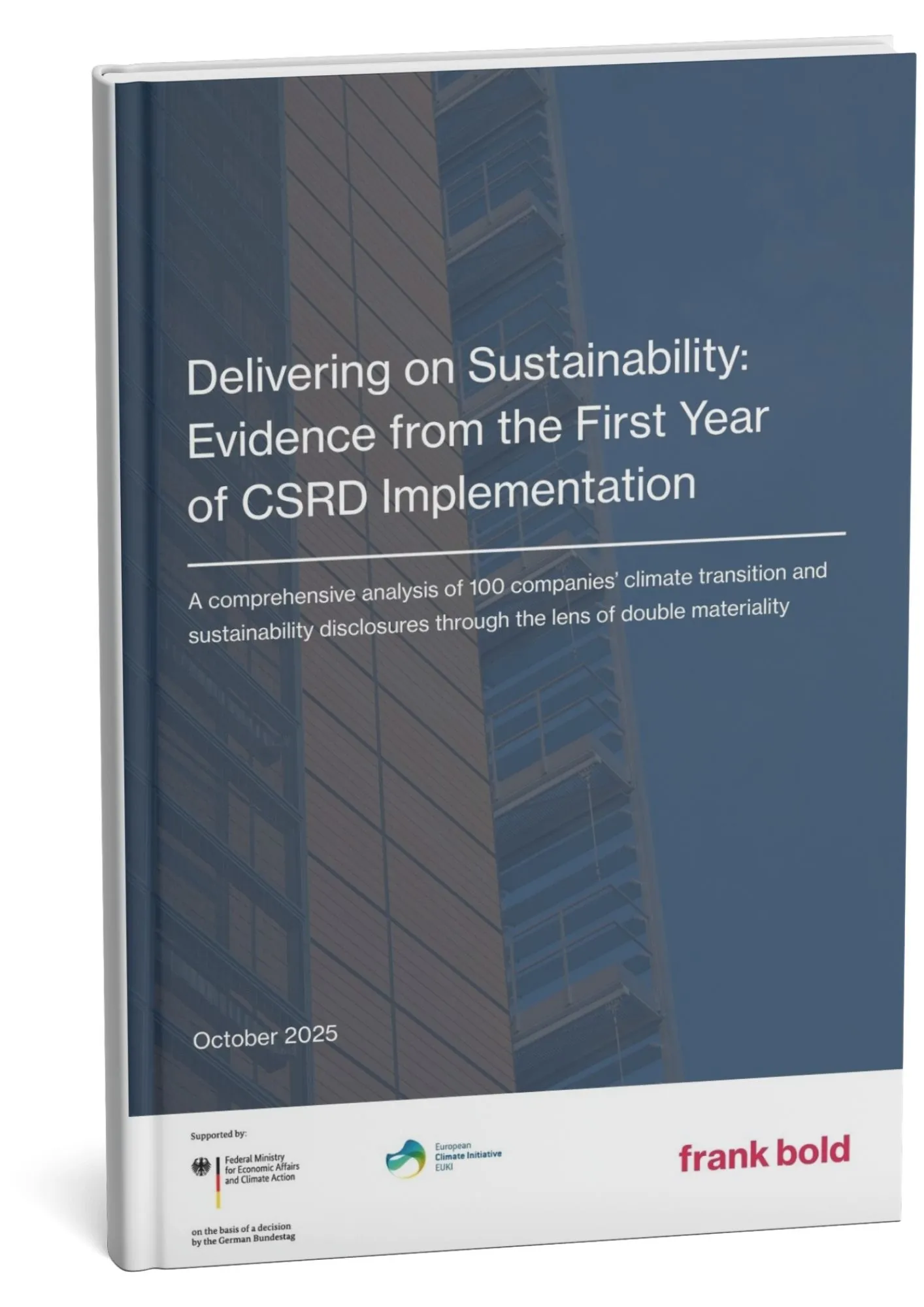"Smaller companies affected by mandatory ESG reporting in the second wave will face a number of challenges - from collecting the necessary data, to working with the supply chain, to implementing processes to manage and analyse materiality. We are already helping companies that want to be well prepared for the first ESG report to set up an implementation plan so that they have all key items in place and tested in 2025," explains Filip Gregor, team leader at Frank Bold Advisory and member of EFRAG's Sustainability Reporting Board.
"Companies need to prepare for the increased information requirements of banks and investors, who must mandatorily assess the compliance of their investments with the taxonomy," points out Filip Gregor of Frank Bold Advisory.

"A public consultation is now underway on the draft Guidelines on Enforcement of Sustainability Information. The final guidelines can be expected in the second half of the year," predicts Filip Gregor.
For example, covered companies, banks and investors will need to adopt and implement climate transition plans, including greenhouse gas reduction targets that are consistent with the goals of the Paris Agreement.
EU negotiators will now work on finalising the technical details of the text before its formal adoption by the European Parliament and the EU Council.
The EUGB is a voluntary standard that requires bond proceeds to be spent on activities that are classified as sustainable according to the EU taxonomy. The regulation also requires bonds to be authenticated by an external verifier, which will be registered in a special register overseen by ESMA (European Securities and Markets Authority).


Discover how European companies are managing ESG reporting. The new study by Frank Bold’s Responsible Companies team summarizes the first wave of sustainability reports from one hundred major European companies and shows that reporting under the CSRD provides valuable data for decision-making and is becoming an effective tool for risk management. Publication is part of the European Climate Initiative (EUKI) of the German Federal Ministry for Economic Affairs and Climate Action (BMWK).

Comprehensive Sustainability Report aligned with CSRD.
.webp)
A simplified ESG report for your business partners.

Mapped according to GHG Protocol Product Standard.

We are part of the Frank Bold Expert Group
Copyright ©
Aktuální rok script
Frank Bold